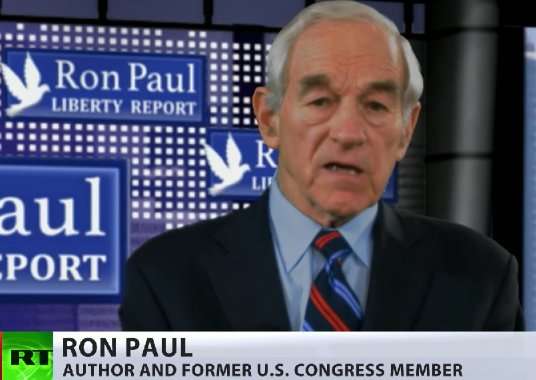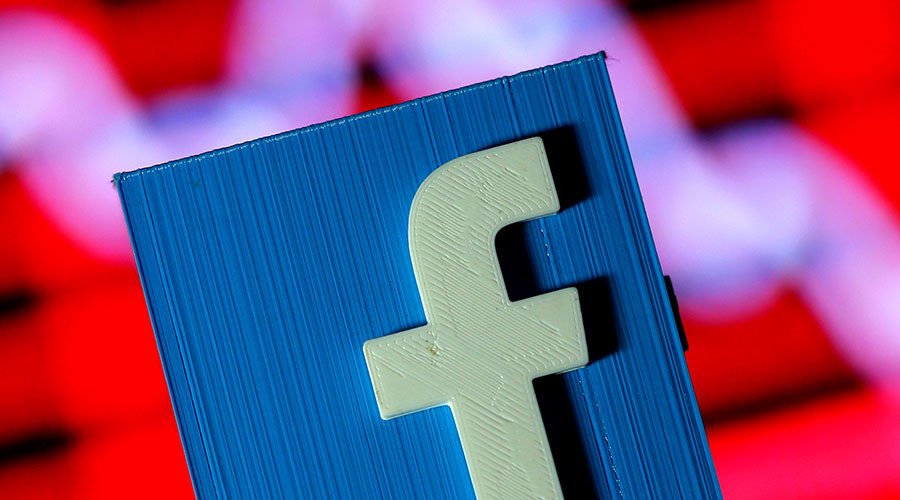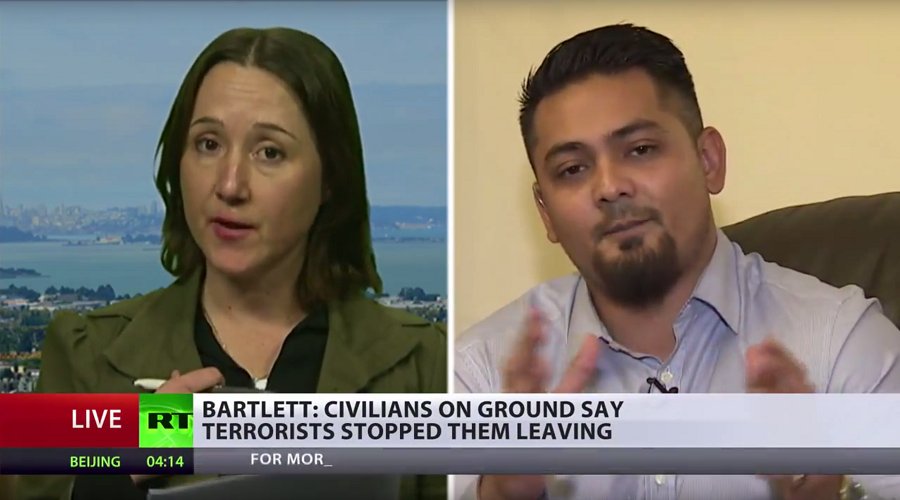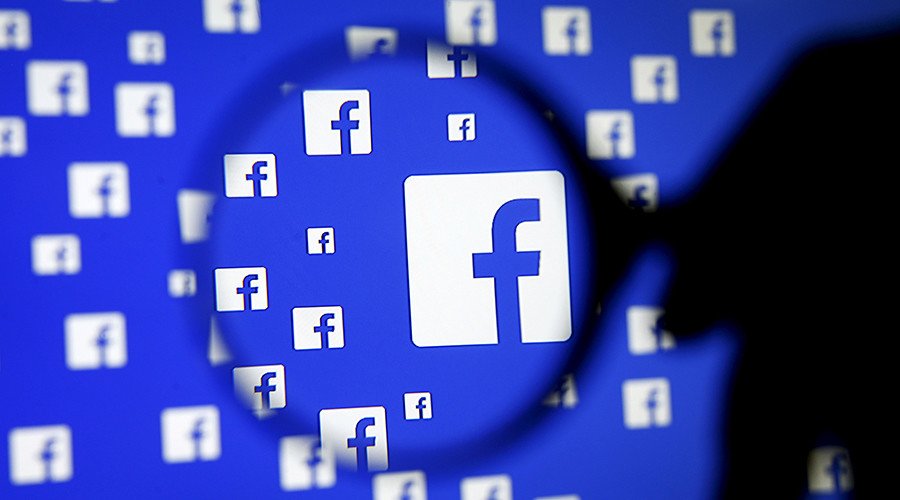German
Minister Seeks Jail Time, Fines In Criminal Crackdown Against
Facebook "Fake News"
18
December, 2016
With
Facebook having announced
last week the
launch of measure to flag and eliminate fake news from appearing on
its website, Germany does not think the process is fast enough, and
according to Germany's Justice Minister Heiko Maas, German judges and
state prosecutors need to crack down straight away on fake news
disseminated through social media platforms such as Facebook.
Interviewed by Bild am Sontag, Maas, a Social Democrat in conservative Chancellor Angela Merkel's coalition, has repeatedly warned the U.S. technology company to respect laws against defamation in Germany that are more rigid than in the United States and added that the newspaper the principle of free speech does not protect against slander.
Interviewed by Bild am Sontag, Maas, a Social Democrat in conservative Chancellor Angela Merkel's coalition, has repeatedly warned the U.S. technology company to respect laws against defamation in Germany that are more rigid than in the United States and added that the newspaper the principle of free speech does not protect against slander.
Germany's
Justice Minister Heiko Maas
"Defamation
and malicious gossip are not covered under freedom of speech,"
Maas said cited by
Reuters,
just days after other top government officials called for legislation
to tackle "hate speech" and fake news on Facebook and other
social media platforms. He added that the government is keeping close
tabs on how efficiently Facebook removes illegal content. If
removal rates fail to grow, “urgent
legal consequences” could follow.
Urging
a criminal crackdown, the Justice Minister said "authorities
must prosecute [hate speech], even on the internet," noting
that offenders could face up to five years in jail. "Anyone who
tries to manipulate the political discussion with lies needs to be
aware (of the consequences)."
“We
expect significant improvements in Facebook’s removal
practice. The
standard for removals must be German law,” Maas told Sueddeutsche
Zeitung on Friday.
standard for removals must be German law,” Maas told Sueddeutsche
Zeitung on Friday.
Under
German law, which states that spreading information that encourages
violence against people due to their ethnic or religious background,
hate speech - including online comments - is punishable by up to
three years in jail. Yet while more than 218,000 cases involving
insults were filed with prosecutors in 2015 under Germany's strict
libel and slander laws, few internet cases were prosecuted.
Maas
said he wants to change that: "We need to fully utilize all the
legal authority at our disposal," he said.
Earlier
in the week, the parliamentary chairman of Germany’s Social
Democratic Party (SPD), Thomas Oppermann, asserted that social media
giants like Facebook should be required to remove fake news and
illegal posts within 24 hours or
face fines up to €500,000 ($522,000). “Facebook
has not used the opportunity to effectively regulate the issue of
complaint management itself,” Oppermann said in an interview with
Der Spiegel on Friday. Therefore, “market dominating platforms like
Facebook will be legally required to build a legal protection office
in Germany, available 24 hours a day, 365 days a year,” he dded.
As
reported previously, Merkel’s Christian Democrats (CDU) party has
acknowledged in a statement that, while social media platforms offer
“completely new possibilities of political communication,” they
also harbor some dangers. The CDU claimed on Friday that Facebook and
other social media sites have increasingly become platforms for
spreading ‘fake news’ and hate messages, citing manipulation of
political discussions on the web as one of the greatest dangers.
“Companies are responsible for what happens on their platforms.
That is why they have to react,” Volker Kauder, a senior CDU
member, noted.
Proposed
legislation would oblige social media platforms to set up offices to
respond to complaints from people affected by hateful messages. “High
penalties” would await companies that fail to meet their
responsibilities, he warned. On Thursday, Facebook said in a
statement that, although it believes in “giving people a voice,”
it is currently working on measures to prevent fake news from
spreading on the platform, including “several ways to make it
easier to report a hoax if you see one on Facebook.”
Escalating
the crackdown against the social network, last week the International
Auschwitz Committee accused Facebook of “poisoning the societal
climate” in Germany and overseas, warning
that the social media giant’s soft treatment and arrogance towards
online hate speech is “increasingly intolerable and dangerous.”
Facebook “continues to massively participate in the poisoning of
the social climate, not only in Germany,” said Christoph Heubner,
executive vice president of the International Auschwitz Committee
(IAC), as quoted by German news agencies.“
"Obviously,
the responsible persons at Facebook neither take the [German] justice
minister nor the German legislator seriously,” he added.
* *
*
Ultimately,
the reason behind the German urgency to crack down on Facebook likely
stems from the German politicians' fear that hate speech and ‘fake
news’ could influence public opinion ahead of the federal elections
next year, with far-right parties gaining momentum on growing
discontent with Angela Merkel’s open-door refugee policy.
Fears
of "fake news" ahead of the election have increased after
the head of Germany's domestic intelligence agency, Hans-Georg
Maassen, reported a rise in Russian propaganda and disinformation
campaigns aimed at destabilizing German society. As reported
last week, "German
Politicians Are Worried About "Striking Increase" In
Russian Propaganda And Fake News,"
and now that Russians have become the global scapegoat (and
even Britain has joined in)
for any potential political upheavals, it is reasonable that Germany
will use US concerns about Russian interference to starwman potential
Russian interference ahead of the 2017 elections, especially if the
result is an "unexpected" one.
"Facebook
is earning an awful lot of money with fake news," Maas told Bild
am Sonntag. "A company that earns billions from the internet
also has a social responsibility. Prosecutable defamation must be
deleted immediately, once reported. It needs to be made easier for
users to report fake news."
Which,
"under pressure" from politicians, is precisely what
Facebook has started, in a move that while some applaud, others see a
major threat to freedom of speech around the globe as Facebook, and
its "fact checkers", are gradually becoming the de facto
arbiters of what is and isn't news in a process that, as presented,
provides no checks and balances to "check the fact checkers."
My question would be, why would the CHINESE be at all interested in InfoWars?Facebook’s 'anti-fake news' plan looks like effort to curb alternative media
Bryan
MacDonald is an Irish journalist, who is based in Russia

©
Dado Ruvic / Reuters
RT,
18
December, 2016
There
are serious concerns over a social media giant's plans to debunk
spurious news stories. And many are puzzled about the real agenda at
play.
You
don’t need to worship at the altar of George Orwell to see where
this is going.
Under tremendous assault from the American
establishment media over the proliferation of what they define
as ’fake
news’ on
the platform, internet behemoth Facebook has finally caved in and
agreed to regulate content. While, in principle, the concept sounds
relatively noble, the manner in which it's proposed to implement it
merits many questions.
Among
them are the continuing dangers of American domination of the world
wide web and the liberal bias of that country’s popular press. But
most worrying is the uncharted territory we are entering. Because
there has never been a media portal as dominant as Facebook. In the
past, big broadcasters or newsagent chains might have enjoyed
outsized influence, but Mark Zuckerbeg’s firm is an effective
monopoly.
CIA meddled in ‘hundreds’ of elections: Ron Paul talks Russia-blaming, fake news and more on RT
http://on.rt.com/7xyc
Whereas
papers have always been curated by editors, their power was limited
by the sheer number of competitors in every national market. And the
more different they were, the better for society in general. However,
there is only one Facebook, and its power, in this regard, is
extraordinary.
Of
course, another big problem here is that one person’s “fake
news” could
be another’s truth. And that’s before we mention how some of the
outlets pressuring Facebook are often guilty of making up stories
themselves.
Strange Bedfellows
To
filter content, Facebook has joined up with Poynter, an
self-proclaimed “international
fact-checking network,” which
presents itself as a neutral body with great integrity. Yet, a
cursory glance at its funding sources is enough to set alarm bells
ringing. They include Pierre Omidyar, George
Soros and
Washington’s National Endowment for Democracy, a CIA soft-power
cutout. As it happens, regular RT readers will remember these three
as the primary foreign backers of Ukraine’s Maidan coup in 2014.
Facebook up to the facts: Social network, third party fact-checkers to sort out ‘fake news’
http://on.rt.com/7xuw
Thus,
it’s clear that this project could easily wind up as some sort
of “ministry
of truth” with
only organizations who adhere to liberal Washington’s official line
permitted unfettered access to Facebook’s primary news feeds. And
this is very dangerous.
Additionally,
the fact that Poynter’s sponsors, which also include Bill Gates and
Google, almost uniformly supported Hillary Clinton in the recent US
election is very troubling. Because it’s another indication of how,
having endured a series of electoral setbacks this year, the
globalist elite is now effectively trying to block out dissenting
voices.
That
said, nobody is disputing whether “fake
news” is
a problem. It’s just hard to find agreement on its definition. For
instance, very few in the west would define the Washington Post,
Guardian, Daily Telegraph or New York Times as providers of fictional
reportage, but viewed from Moscow it's often a different story.
Mainstream Muck
last month, WaPo accused 200 non-mainstream sites of acting on behalf
of the Kremlin, in a story which has been definitively debunked
by numerous credible sources.
And, just last week, the NYT carried a front page story alleging
thatVladimir
Putin was
using “kompromat” to
destroy the reputations of his political opponents. For 'proof' they
used the case of Vladimir Bukovsky, who was being investigated by
British police over possession of child pornography.
German politicians want €500k fines if Facebook fails to remove fake news within 24hrs http://on.rt.com/7xyu
The
paper's readers were greeted with this soft-soap intro from
correspondent Andrew Higgins: “His
indomitable will steeled by a dozen years in the Soviet gulag,
decades of sparring with the K.G.B. and a bout of near fatal heart
disease, Vladimir K. Bukovsky, a tireless opponent of Soviet leaders
and President Vladimir V. Putin of Russia, is not a man easily put
off his stride.” And
to back up his yarn, Higgins made a series of unsubstantiated claims
linking Russian state meddling to other similar schemes.
Yet,
sadly for Higgins - and Bukovsky, of course - his hero admitted a few
days later that he actually collected the child porn images himself,
as "research."
Then
there’s the Guardian,
where its former Moscow correspondent Luke Harding has been alleging
for years that Putin is the richest man in Europe, if not on earth.
A
statement that is frequently repeated in similar outlets, where his
fortune - without any explanation - suddenly leaped from $40 billion
to $200 billion recently, according to the same Washington
Post.
These
journals of renown base their figures on a single, very shaky,
source. And we can’t forget the Daily Telegraph, which appears to
have given up on using professional journalists to cover Russia, and
has produced some right porkies in recent times. Including outrageous
stuff like Putin jetting to Switzerland, incognito, to oversee the
birth of a love
child and
Moscow developing a Star Trek-esque teleportation
device.
Are
all these not examples of “fake
news?” But
given that they are establishment names in the western press, don’t
expect Poynter to subject them to the same treatment as newer
alternative outlets. And this is the problem with the entire
exercise.
Credible or fake? Journalists clash in fiery RT debate on news sources in #Syria (VIDEO) http://on.rt.com/7xxx
Fragile Foundations
The
list of signatories to the International Fact-Checking Network
also sets alarm bells ringing. For they include some fairly dubious
organizations. Take Politifact,
for example. This group has been accused of having a left-wing bias
and openly favoring Clinton during the US election campaign. As
Breitbart observed: “When
Trump said Clinton wants “open borders,” PolitiFact deemed his
statement “mostly false” — despite the fact that Clinton
admitted as much in a private, paid speech to a Brazilian bank on May
16, 2013. “My dream is a hemispheric common market, with open trade
and open borders,” she said at the time.”
‘Intolerable & dangerous’: #Auschwitz Committee accuses #Facebook of turning blind eye to hate speech http://on.rt.com/7xwj
There
is no doubt that blatantly made up, let alone poorly fact-checked,
stories are poisoning political discourse. And Facebook is right to
tackle the type of companies who produce twaddle such as “Hillary
invented the Aids virus” or
“Trump
wants to distribute Mein Kampf to school kids" or
whatever nonsense is being pushed today.
However,
will it also censure “respected” mainstream
outlets who allege that Putin has stolen $200 billion for himself or
is planting child porn on dissidents?
Because
unless they are also labelled with the “fake
news” badge,
this looks more like an exercise in the US liberal establishment
trying to gain control of the distribution of news on social media,
as they once did with newspapers and broadcaster.
Orwell
might have called it a sort of “Minitrue.”
 RT America
RT America



















 RT
RT


























No comments:
Post a Comment
Note: only a member of this blog may post a comment.